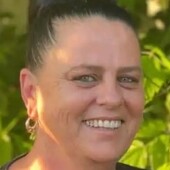
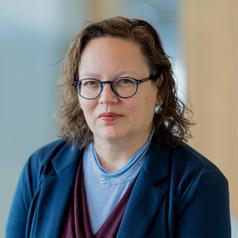
Michelle L. Oyen
Associate Professor of Biomedical Engineering, Arts & Sciences at Washington University in St. Louis
Engineering professor and researcher with > 120 peer reviewed publications in materials science, biomechanics, biomaterials, and tissue engineering. Currently pursuing a certificate in science writing at Johns Hopkins in addition to my "day job" and working on a book contracted to MIT press.
Less ![]()
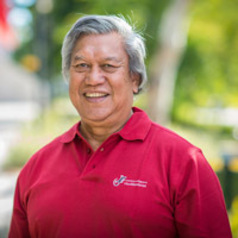
Mick Adams
Senior Research Fellow, Australian Indigenous HealthInfoNet , Edith Cowan University
Dr Mick Adams is a descendent of the Yadhiagana people of Cape York Peninsula in Queensland, having traditional family ties with the Gurindji people of Central Western Northern Territory and extended family relationship with the people of the Torres Straits, Warlpiri (Yuendumu), and East Arnhem Land (Gurrumaru) communities. Mick holds a PhD in Public Health from Queensland University of Technology (QUT) and a Master of Arts (Indigenous Research & Development), Centre for Aboriginal Studies, Curtin University of Technology. Prior to undertaking his postgraduate studies he undertook at Bachelor of Social Work, a Bachelor of Applied Science (Aboriginal Community Management and Development), an Associate Diploma in Social Work and a Community Development Certificate.
Mick has been working in the health industry for over 30 years. He has worked in both state and the community-controlled health service sector, has been a representative on local, state and national boards, and has been nominated as a representative to advocate for Aboriginal and Torres Strait Islander health issues on national boards and national and international conferences. He has worked as a Chief Executive Officer with the Aboriginal and Islander Community Health Service, Brisbane (AICHS) in Brisbane and Miwatj Aboriginal Corporation for Health in Nhulunbuy. He has also served as the Chairperson of AICHS Brisbane and the National Community Controlled Health Organisation (NACCHO), as well as being a Board Member of AICHS, Queensland Aboriginal and Islander Health Council (QAIHC) and NACCHO.
Mick commenced his position as Senior Research Fellow at the Australian Indigenous HealthInfoNet and also Kurongkurl Katitjin in May, 2015. He was previously Adjunct Professor with the Faculty of Health at the Queensland University of Technology (QUT) and a Director of Fineline Consultancy Pty Ltd, which undertakes research and community development projects. He is Chairperson of the Aboriginal and Torres Strait Islander Health Service Brisbane and the National Aboriginal and Torres Strait Islander Male Health Leadership Group; a Board Member of Diabetes Australia Queensland; a Member of the National Heart Foundation (Queensland) Aboriginal and Torres Strait Islander Reference Committee; a Member of Andrology Australia (The Australian Centre of Excellence in Male Reproductive Health) Aboriginal and Torres Strait Islander Male Health Reference Group; and a Member of the Minister's Male Health Reference Group; Member of the NHMRC Aboriginal and Torres Strait Islander Health Advisory Committee (ATSIHAC) and it's Research Committee. He is also a Member International Network Indigenous Health Knowledge Development Committee (INIHKD) and the International Indigenous Centre Health Intelligence (IICHI).
Mick has been actively involved in addressing issues associated with the health and well-being of Aboriginal and Torres Strait Islander males for over a decade, striving to ensure that mens health issues are promoted and placed on the national and international agenda through advocacy, research, publication and health management.
Less ![]()
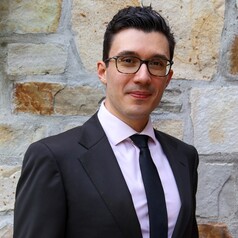
Mickaël Ringeval
Postdoctoral Fellow, Department of Information Technologies, HEC Montréal
I am a dedicated Postdoctoral Researcher at HEC Montréal with a Ph.D. in Information Technology, specializing in Health IT and Artificial Intelligence (AI).
Less ![]()
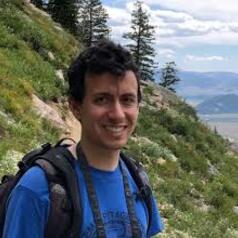
Mickey Pardo
Postdoctoral Fellow in Fish, Wildlife and Conservation Biology, Colorado State University
I am a behavioral ecologist interested in the intersection of animal acoustic communication, animal cognition, and the evolution of language. I use a combination of observation and non-invasive experiments with wild animals in their natural habitat to gain a window into the minds of my subjects and the intricacies of their social lives. I am also passionate about conservation biology and the use of bioacoustics as a tool for biodiversity conservation.
I am currently an NSF-funded postdoctoral fellow in the lab of Dr. George Wittemyer at Colorado State University, where I study vocal communication in African savannah elephants. I obtained my Ph.D. from the Department of Neurobiology and Behavior at Cornell University, studying social cognition and vocal communication in the cooperatively breeding Acorn Woodpecker with Dr. Walt Koenig and Dr. Mike Webster. I received my B.S. degree in Environmental Biology from SUNY College of Environmental Science and Forestry, where I completed an Honors thesis on visual communication in Eastern gray squirrels under the supervision of Dr. Bill Shields.
Less ![]()

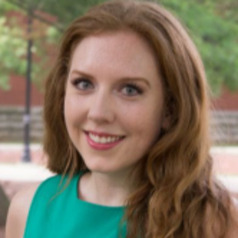
Micki Olson
Senior Researcher in Emergency and Risk Communication, University at Albany, State University of New York
Micki Olson, Ph.D., is a risk communication expert who specializes in how to design alert and warning messages for risks ranging from natural hazards to public health emergencies.
She studies how communication shapes people's reactions to risks. She is passionate about helping experts and public safety officials write concise, understandable, and impactful messages for the public.
Less ![]()
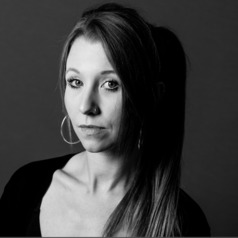
Mieko Tarrius
Ph.D. Candidate in Geography and Urban Studies, Concordia University
Ph.D. candidate in Geography and Urban Studies and Public Scholar at Concordia University (Montreal), I hold an M.A. in Political Science (Université du Québec À Montréal), a Maîtrise in Political Science (Paris 8 University/CUNY City College of New York), and a B.A. in Political Science (Paris 8 University).
Specialization: Gentrification and cities, critical whiteness studies, critical race theories, racial capitalism, time and temporality, feminist geographies, tech geographies, and visual methods.
Less ![]()
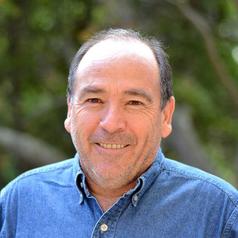
Miguel Altieri
Our research group uses the concepts of agroecology to obtain a deep understanding of the nature of agroecosystems and the principles by which they function. Throughout our research and writings we have aided in the emergence of agroecology as the discipline that provides the basic ecological principles for how to study, design, and manage sustainable agroecosystems that are both productive and natural resource conserving, and that are also culturally-sensitive, socially-just and economically viable. In particular, our research has focused on the ways in which biodiversity can contribute to the design of pest-stable agroecosystems. Several of our studies concentrate on elucidating the effects of intercropping, covercropping, weed management, and crop-field border vegetation manipulation on pest population density and damage and on the mechanisms enhancing biological control in diversified systems.
Our research has also extended into Latin America where the enhancement of biodiversity in agriculture can help the great mass of resource-poor farmers to achieve year-round food self-sufficiency, reduce their reliance on chemical inputs and develop agroecosystems that rebuild the production capacities of their small land holdings. Our approach has consisted of devising integrated farming systems emphasizing soil and water conservation, natural crop protection, and achievement of soil fertility and stable yields through integration of trees, animals, and crops. Much of this work is conducted through inter-institutional partnerships with NGOs, International Research Centers and Universities including networks such as SANE, ANGOC and CLADES, as well as international organizations such as UNDP and the CGIAR.
Less ![]()
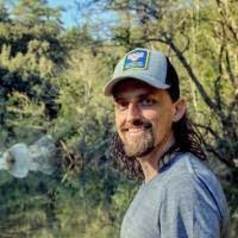
Miguel Cañedo-Argüelles
Profesor lector en Ecología, Universitat de Barcelona
Summary of the CV
I have published a total of 55 JRC articles in 33 different journals covering a wide range of topics (e.g. biodiversity conservation, ecotoxicology, metacommunity ecology, paleolimnology). I am the first author of 19 and the last author of 6 of those articles. My publication rate has considerably increased during the last years, from 1 article published in 2009 to 10 articles published in 2021. Additionally, I have published 2 books and 7 book chapters. Thirty-one of my articles are published in journals belonging to the first quartile, including high impact journals like Science (IF = 37.2), Frontiers in the Ecology and the Environment (IF = 10.9), BioScience (IF = 8.3), Limnology and Oceanography Letters (IF = 7.875), Philosophical Transactions of the Royal Society B (IF = 5.7) and Science of the Total Environment (IF = 4.9). My publications have been cited 1948 and 2639 times and my h-index is 23 and 27, according to Scopus and Google Scholar (respectively). Some of my articles as first author have been widely cited. For example, my 2016 article in Science (351: 914-916) is in the top 5% of all research outputs ever tracked by Altmetric, and my 2013 article in Environmental Pollution (173: 157-167) was acknowledged as highly cited in the field of Environmental Sciences according to the Web of Science (i.e. it performed in the top 1%). According to the Field Citation Ratio, my articles have been cited on average 7.2 times more than the rest of articles published in the same field and in the same year.
I have participated in 21 R&D projects funded through competitive calls of public or private entities (leading 5), 8 R&D non-competitive contracts (leading 4) and I have directly secured 527.656 euros in research funds. Also, I serve as a Senior Advisor to the Spanish Government on biomonitoring climate change and pollution in rivers and streams through the public corporation Tragsatec. I obtained 3 highly competitive fellowships (Ramón y Cajal, Fulbright and Marie Curie). I have coordinated mesocosm experiments and field campaigns in Iceland, Spain and USA. I have supervised 1 PhD student (+ 2 more on going), 2 postdoc researchers, 6 master theses and 6 undergraduate dissertations. Two of my students were awarded for their research projects: Daniel Torres (best BsC dissertation of the University of Vic in 2016) and Miquel Sala (II Earth & Torres award on innovation). I have been a committee member of 6 PhD defences.
I have given 4 plenary talks, been a member of 4 scientific committees and chaired 9 special sessions at international conferences. I serve as an academic editor for Plos One (IF = 2.7) and I have served as guest editor for Philosophical Transactions of the Royal Society B (IF = 5.7), Limnology and Oceanography Letters (IF = 5.2) and Frontiers Ecology And Evolution (IF = 2.1). I have reviewed 172 articles for 42 different journals (e.g. Global Change Biology, Scientific Reports, Nature Geoscience, Ecography) and in 2017 I was awarded by Publons as the third best reviewer from the University of Barcelona. I am a member of the Gender and Science Commission of the Iberian Limnological Society and I served as the representative of early career researchers in the European Federation for Freshwater Sciences. I created and chaired a Global Interest Group on Freshwater Salinization at the Society of Environmental Toxicology and Chemistry bringing together stakeholders and scientists from around the world.
Scientific trajectory
I obtained my PhD from the University of Barcelona in 2009, focusing on the ecology and
management of coastal ecosystems and publishing 7 JRC articles. During that period I did a research stay at the University of Algarve (Portugal), where I later (2010-2011) worked on integrated coastal management as a contracted researcher. Then (2011-2012) I came back to the University of Barcelona as an adjunct professor and a contracted researcher and I became interested on freshwater salinisation. I coordinated several mesocosm experiments and published 3 JRC articles, including a review acknowledged as highly cited by the Web of Science. Then I was awarded with a Fulbright Fellowship at the Oregon State University (2012-2014) to asses the impacts of climate change on stream biodiversity. There, I started my own research line on metacommunity ecology (publishing 2 JRC articles) and continued my research on freshwater salinisation (e.g. I created Global Interest Group at the Society of Environmental Toxicology and Chemistry). By then, I already had a strong and wide scientific network and I had gained international recognition. This allowed me to obtain a Marie Curie Fellowship at the University of Vic (2014-2016), where I created a research line on freshwater salinisation. I coordinated several experiments, supervised students and led my own research projects. This resulted in 5 JRC articles, including 1 published in the policy forum section of Science. After that (2016 present) I came back to the University of Barcelona, where I worked as a contracted researcher and an adjunct professor, and I was finally hired as a tenure-eligible lecturer professor within the Serra-Hunter talent attraction programme. During this period I have started a research line on biodiversity conservation planning, and I have gained independency (e.g. leading research projects, supervising students) and international reputation (e.g. plenary/invited talks, editorial activity, scientific advisory boards, media interviews). More recently, I have been awarded a Ramón y Cajal Fellowship by the Spanish Government that will fund my research for the next 5 years.
Less ![]()

Miguel Flores
Assistant Professor in Economics, National College of Ireland
Dr Miguel Flores is an Assistant Professor in Economics and Programme Director for work placements at the National College of Ireland (NCI), School of Business. Miguel is a Senior Fellow of the UK Higher Education Academy and an Associate of The Economic Network.
Miguel's research areas are Industrial Organisation, Economics Education, and Applied Economics. His current agenda focuses on labour market outcomes of higher education graduates, in particular the impact of work placements on graduate employability.
Less ![]()
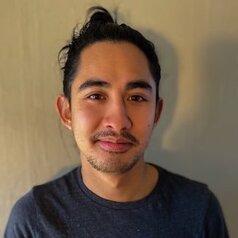
Miguel Jimenez
Ph.D. student in Ecology, Colorado State University
I am a Ph.D. student studying radar aeroecology to study how we can make cities safer for migratory birds. I am also a writer, interested in connecting people to the natural world and making ecological research more accessible to all. I have written for the National Audubon Society, Nature Portfolio, Positively Filipino, and BirdCast, and I am a recurring guest on the American Birding Podcast.
Less ![]()

Miguel Lázaro
Profesor de la Facultad de Psicología. Logopeda y lingüista. Especialista en trastornos del lenguaje oral y escrito, Universidad Complutense de Madrid
Personal Docente e Investigador de la Universidad Complutense de Madrid. Previamente docente e investigador en las Universidades Autónoma de Madrid y de Castilla-La Mancha.
Estancias de Investigación en la Radboud University Nijmegen, Holanda -Prof. Robert Schreuder-, Institute for Cognitive Sciences and Technologies, Italia -Profa. Cristina Burani- y profesor visitante en la Bergische Universität Wuppertal, Alemania.
Autor de numerosos artículos y capítulos en revistas y editoriales de prestigio internacional.
Less ![]()
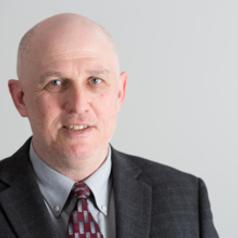
Miguel Schor
I am a professor of law at Drake University where I teach constitutional law. My research focuses on comparative constitutionalism, democratization and authoritarianism, and constitutional design.
Less ![]()
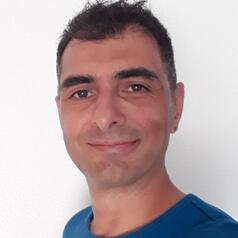
Miguel Ángel Pérez-Sánchez
Profesor Titular del Dpto. de Psicología Básica y Metodología, Universidad de Murcia
Profesor e investigador del Dpto. de Psicología Básica y Metodología de la Universidad de Murcia.
Less ![]()
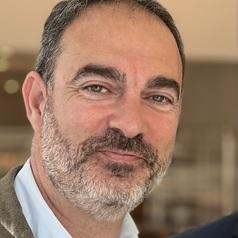
Miguel Ángel de Santiago Mateos
Profesor de Comunicación Audiovisual y Publicidad, Universidad CEU San Pablo
Less ![]()
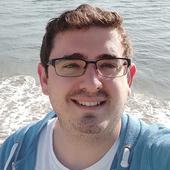
Miguel Angel Mate Gonzalez
Personal Docente e Investigador - Contratado Ramón y Cajal , Universidad de Salamanca
Less ![]()
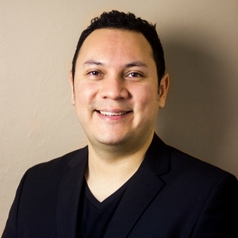
Miguel E. Rentería
Associate Professor, QIMR Berghofer Medical Research Institute
Miguel leads the Computational Neurogenomics Lab in the Brain & Mental Health Program at the QIMR Berghofer Medical Research Institute. He is the recipient of a prestigious Al & Val Rosenstrauss Fellowship from the Rebecca L. Cooper Medical Research Foundation, and a Global Atlantic Fellow of the Global Brain Health Institute.
Less ![]()
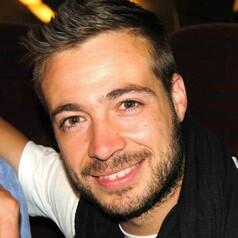
Miguel Montoro Girona
Professeur d'écologie forestière, Université du Québec en Abitibi-Témiscamingue (UQAT)
Mes expertises portent sur l'aménagement forestier durable et la sylviculture face aux changements climatiques. Concrètement, ma recherche vise à développer des traitements de coupes expérimentales (coupes partielles) et à évaluer leurs effets sur la croissance, la régénération, la mortalité (chablis) et la biodiversité. De plus, je m'intéresse à la modélisation de forêts complexes à l'échelle du paysage (Landis-II), ainsi qu'à l'effet des perturbations naturelles (épidémies d'insectes, chablis, broutement, le castor), à la structure et à la dynamique forestière à multiples échelles spatio-temporelles en utilisant des approches dendroécologiques et paleoécologiques.
Diplômes :
Postdoctorat, UQAC (2018-2019)
Postdoctorat, SLU (2017-2019)
Postdoctorat, UQAC (2017)
Ph. D. en foresterie, UQAC (2017)
B. Sc. en génie forestier, Université de Huelva (2011)
M. Sc. systèmes d'information géographique, Université de Seville (2009)
B. Sc. en sciences de l'environnement, Université de Murcie (2007)
Less ![]()
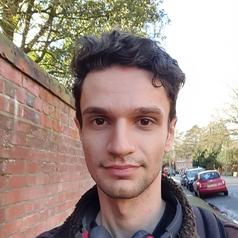
Mihai Popescu
Postdoctoral Associate in Chemistry, Colorado State University
Mihai Popescu is a postdoctoral researcher in the Paton lab at Colorado State University. His research focuses on the elucidation of complex reaction mechanisms with the aid of modern computational methods.
Less ![]()

Mihi Joy Nemani
Senior Lecturer, Te Huataki Waiora School of Health, University of Waikato
I am a PhD candidate and Senior Lecturer at the University of Waikato. My areas of research are with young Māori and Pasifika wāhine (women) and their engagement and experiences with physical activity and sport.
Less ![]()
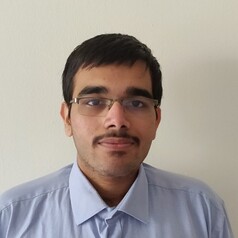
Mihir Parekh
Postdoctoral Fellow in Physics and Astronomy, Clemson University
Postdoctoral fellow in Physics and Astronomy. Research areas: Electrochemical energy storage and conversion (experiments and models), biorenewable materials (expt and models), Opto-thermal property modelling.
Less ![]()
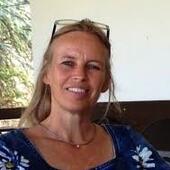
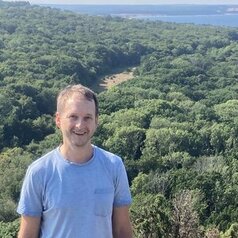
Mikael Roll
Professor of Phonetics, Lund University
I investigate how the brain processes speech (neurolinguistics). I lead projects with a consolidation grant from VR and grants from KAW and MAW, using high resolution magnetic resonanance imaging (MRI) to explore to what extent speech perception can be integrated into general auditory perception. As a Wallenberg Academy Fellow and in a project from MAW, I have also lead the work of tracing how speech melody is used to predict and facilitate processing of grammatical structure. Aids have also been developed for second language learning of the speech melody-grammar association.
I have previously led a research project exploring how time-based decay of word forms in short-term memory influence sentence processing. I have also used Latent Semantic Analysis (LSA) to investigate how words’ degree of abstractness affect associations in speakers with Broca’s aphasia.
Less ![]()
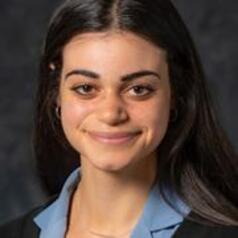
Mikaela Bloomberg
Senior Research Fellow, Department of Epidemiology and Public Health, UCL
Mikaela Bloomberg is a Senior Research Fellow in Social Epidemiology and Social Statistics in the Department of Epidemiology and Public Health. Her research interests are in demographic and lifestyle determinants of healthy ageing, particularly cognitive ageing and dementia.
Less ![]()

Mikaela Gerwing
Wildlife Conservation Biologist and PhD Student, Concordia University
I am a wildlife conservation biologist and a PhD. student at Concordia University, Montreal. My research focus is threefold: the rehabilitation and reintroduction of bearded capuchin monkeys in the Brazilian Caatinga, human-wildlife coexistence in the area of release, and the effectiveness and ethical integrity of wildlife rescue centres in the areas of animal welfare, human welfare and conservation.
In 2022, I graduated with my MS in Nonprofit Management from Columbia University, New York, summa cum laude. Prior to this I worked as a conservation biologist for Taricaya Eco Reserve and Rescue Center in the Madre de Dios region of Peru for two years. In 2019, I earned my BSc. in Natural Resources Conservation, Global Perspectives from the University of British Columbia, Vancouver. Throughout my career, I have worked and volunteered in wildlife conservation and rehabilitation in four continents with countless animals and dream to one day open and operate a nonprofit wildlife rescue center. I am passionate about wildlife conservation and reintroduction, community development and animal welfare, with a particular affinity towards primates, elephants and bears.
Less ![]()

Mikaila Ortynsky
PhD Student, Organizational Behaviour and Human Resource Management, Telfer School of Management, L’Université d’Ottawa/University of Ottawa
Mikaila is a PhD student at the Telfer School of Management, University of Ottawa. Her research focuses on worker well-being, women’s health, and gender in leadership. Mikaila currently holds SSHRC Doctoral Fellowship (2022-26). She obtained her MSc Management specializing in Organizational Behaviour in 2022 from Memorial University of Newfoundland and Bachelor of Commerce (Honours) in Human Resources from the University of Saskatchewan in 2020. Her SSHRC CGS-M funded master’s thesis investigated how menstruation effects work behaviours and outcomes.
Less ![]()
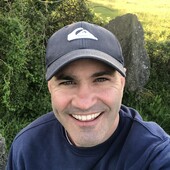
Mike Allen
Associate Professor of Single Cell Genomics, College of Life and Environmental Sciences, University of Exeter
Less ![]()

Mike Alleyne
Professor Emeritus of Popular Music Studies & Music Business, Middle Tennessee State University
Recording Industry Professor Mike Alleyne is the author of numerous books on popular music and recording artists, including "The Essential Hendrix" (2020) and "The Encyclopedia of Reggae" (2012).
Born in London, England, to parents from the Caribbean nation of Barbados, he has lectured and presented conference papers internationally (e.g. Denmark, Finland, Sweden, U.K., Brazil, Colombia, Cuba, Jamaica and South Africa) and serves as a visiting professor at the Pop Akademie in Germany.
His publications include Popular Music & Society, Rock Music Studies, the Journal on the Art of Record Production, the award-winning Grove Dictionary of American Music, Popular Music History, Ethnomusicology Forum, the Journal of Latin American and Caribbean Studies, Social and Economic Studies, Small Axe, Billboard magazine, and in the SAGE Business Case Series in Music Marketing issued online.
His book chapter contributions appear in "Rihanna: Barbados World-Gurl in Global Popular Culture" (2015), "Sound and Music in Film and Visual Media: An Overview" (2009), "Globalization, Diaspora & Caribbean Popular Culture" (2005), "Bob Marley: The Man & His Music" (2003), and "Culture and Mass Communication in the Caribbean" (2001). Dr. Alleyne contributed track notes to the groundbreaking nine-CD box set, the "Smithsonian Anthology of Hip-Hop and Rap" (2020).
Less ![]()
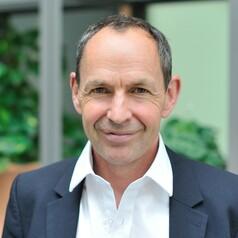
Mike Berners-Lee
Professor of Sustainability, Lancaster University
Mike Berners-Lee is an expert in sustainable organisation development, climate change and carbon metrics. He is the author of 'There Is No Planet B', 'How Bad Are Bananas? The carbon footprint of everything' and co-author of 'The Burning Question'.
He is a founding director at Small World Consulting, and a professor at Lancaster University's Institute for Social Futures, where he looks at better futures, how to get there and how to think practically about these questions.
Less ![]()
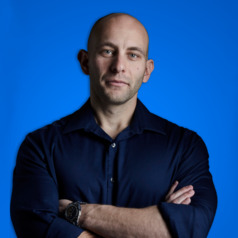
Mike Brand
Adjunct Professor of Genocide Studies and Human Rights, University of Connecticut
Mike Brand is a human rights, atrocities prevention, and peacebuilding professional with 15 years of experience in policy, advocacy, organizing, and education. Mike is an Adjunct Professor of genocide studies and human rights at the University of Connecticut and a Senior Fellow at George Mason University’s Raphaël Lemkin Genocide Prevention Program. Throughout his career, Mike has worked for various non-governmental organizations (NGOs) in the United States, Rwanda, and South Sudan, and has done fieldwork in the Democratic Republic of the Congo and Uganda. Mike supports civil society organizations and diaspora networks in strategic planning, program development, and achieving their advocacy and organizing objectives. He has been published in peer-reviewed journals, national and international publications, and has been quoted in various international news outlets as an expert in his field. He holds a Master’s in International Peace and Conflict Resolution from American University, with a concentration in human rights and atrocities prevention, and BA’s in History and Political Science with a minor in human rights from the University of Connecticut.
Less ![]()
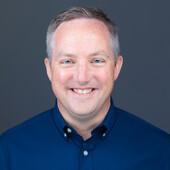
Mike Chapple
Teaching Professor of IT, Analytics, and Operations, University of Notre Dame
Less ![]()
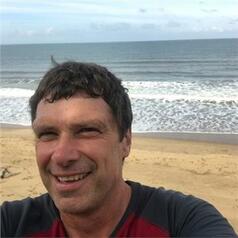
Mike Chick
Senior Lecturer in TESOL/English, University of South Wales
I have worked in language teaching for more than 25 years. I am a TESOL teacher education lecturer and University Refugee Champion. My research interests surround issues in language education for migrants in Wales and I am currently researching university scholarship schemes for people seeking sanctuary.
I have recently completed a commissioned review of the Welsh Government's language education policy for migrants.
Less ![]()
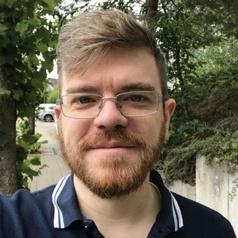
Mike Cook
Senior Lecturer, Department of Informatics, King's College London
Dr Michael Cook is a Senior Lecturer in the Department of Informatics at King's College London. His research focuses on computational creativity and applications of AI to game design and development. He earned his PhD in 2016 from Imperial College London, and currently holds a Royal Academy of Engineering Research Fellowship.
His research interests also include the design and analysis of generative software, general game playing and computational subjectivity.
Less ![]()
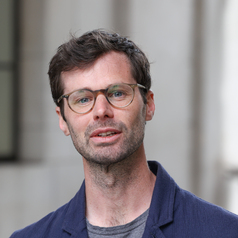
Mike Duggan
Lecturer in Digital Culture, Socety and Economy, King's College London
Mike works in the Digital Humanities Department at King's College London. He holds a PhD in Cultural Geography from Royal Holloway University of London, working in partnership with the Ordnance Survey on studying everyday digital mapping practices. His research is primarily interested in the tensions and contradictions that emerge when we examine how digital society and technology is theorised alongside how everyday life is lived. This has manifested in research about digital mapping practices, the lived experiences of the sharing economy and video conferencing during the pandemic. He is the editor-in-chief of the Livingmaps Review, a bi-annual journal for radical and critical cartography, which welcomes a range of submission styles from academics, artists, activists and others interested in maps and mapping practices.
Less ![]()
- Market Data























